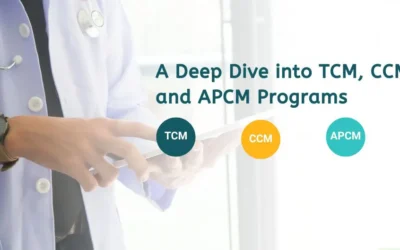
How Remote Nursing Improves Patient Care and Outcomes
Easy and Accessible Care
Remote nursing provides patients with maximum convenience as its main benefit. Patients can reach out with health inquiries without requiring transportation or spending multiple hours of their day.
The Chronic Care Management service provides round-the-clock phone access which enhances patient access to healthcare. Patients can contact a healthcare professional through the 24/7 care line whenever they require urgent help at any time including late night and holiday periods.
Reduced Travel Requirements
Through remote nursing, patients cut down the frequency of their visits to healthcare facilities. People who face mobility issues together with inhabitants of remote locations benefit the most from this approach. Patients benefit from receiving healthcare without needing to travel excessive distances pay for rideshare services or look for public transport options.
Through remote nursing, patients can access healthcare regardless of adverse weather conditions, illness, or the present pandemic, as demonstrated by COVID-19. Preventative care services through CCM allow patients to access care every month without requiring dangerous road travel or work disruptions. Through regular discussions, patients can update their care goals and health changes to avoid condition exacerbation.
Faster, More Efficient Care
The delivery of healthcare through remote nursing proves to be more effective. Care coordinators at CCM programs enable patients to access their scheduled appointments from home without the need to commute to the practice.
Through their CCM services patients receive the chance to book their regular phone sessions in advance to determine their precise appointment dates. Patients maintain immediate health care access through the 24/7 care line whenever they have questions or urgent needs. The patients avoid leaving practice voicemail messages because they receive immediate phone calls directly from the care coordinator.
The system delivers exceptional value for tracking persistent medical conditions because it enables regular patient evaluations. The CCM program provides patients with monthly preventative healthcare services for multiple chronic conditions without monthly trips to the provider’s office.
Seamless Ongoing Care
Effectively managing chronic illnesses depends on providing patients with continuous healthcare. The remote care line from CCM guarantees continuous healthcare team accessibility for patients.
The CCM care coordinators maintain monthly care plan updates while the providers receive notifications about patient contact through the care line and their monthly discussions. The system provides essential health information to all care coordinators and patients and their PCPs and specialists.
Mental Health Support
The remote preventative care system through CCM conducts patient check-ins more regularly than providers do. The monthly contact between CCM care coordinators and patients produces strong relationships while creating numerous opportunities for mental health concern detection.
The care coordinator can guide patients toward educational materials and therapy services and support groups when they detect their patients are facing challenges. Through their assistance care coordinators enable patients to schedule provider appointments so the patients can express their concerns and explore treatment options.
Support for Social Health Factors
The combination of ongoing remote care and regular preventative care enables care coordinators to detect mental health needs as well as Social Determinants of Health challenges in their patients. Patients find it easier to seek help from their regular monthly caller than from their periodic healthcare provider.
The care coordinator assists patients into community support services by connecting them to housing agencies as well as car services for seniors and food pantries when the patient lacks safe housing or transportation or enough nutritious food. The care coordinator conducts checking procedures at regular intervals to verify that patients obtained appropriate resources and identify additional needs for support.
Patient Empowerment
Chronic Care Management along with other remote healthcare programs enables patients to access educational materials through text messages as well as mail and email delivery. Certain remote healthcare programs make care plans available for patient online access.
Through monitoring their own care goals using the remote healthcare system patients create better engagement with their health by maintaining accountability. As a result of receiving empowerment through these programs patients with chronic conditions demonstrate enhanced patient satisfaction together with greater treatment adherence and superior clinical results.
Affordable Care for Patients and Medicare
The operation of CCM programs as well as Medicare benefits substantially through cost reductions for patients alongside the health insurance system. Telehealth technology enables remote nurses to properly monitor their patients as well as manage medications and promptly intervene which results in minimized expenses associated with hospitalization and emergency care. By using this forward-thinking method healthcare providers can minimize complications before they occur thus decreasing hospital stays and return hospital visits that Medicare and patients commonly pay for. Remote nursing improves patient treatment plan compliance hence achieving better health results and reduced future medical expenses. The utilization of remote nursing services by Medicare reduces costs by minimizing unnecessary in-person doctor visits and improving resource distribution to achieve better cost-effectiveness in managing chronic diseases.
Gen By Gen Health's turn-key CCM/RPM solutions ensure compliance and health literacy – improving patient satisfaction and outcomes, increasing revenue, and decreasing staff workload.
To get in touch call us right now at (908)-864-0098 to learn more about our CCM services or you can also book a 30 min free consultation.
You may also like
The Power of Patient Engagement in Driving Better Outcomes
Using patient engagement strategies requires intentional action, but the benefits are significant. People engaged in their care usually follow care plans, control their chronic health problems well, and stay in touch with their doctors. When you start focusing on...
Advance Primary Care Management (APCM) and Who Can Bill For It
Advanced Primary Care Management (APCM), which started in 2025, is the latest care management program from CMS. Unlike older care management plans, it supports every Medicare beneficiary, irrespective of how many chronic conditions they have. As APCM is just starting,...
A Deep Dive into TCM, CCM, and APCM Programs
Transitional Care Management (TCM) is a service that allows Medicare to pay for help given to a person transitioning from a hospital to their home. TCM strives to prevent patients from being readmitted in the first 30 days after they leave the hospital. At this point,...



